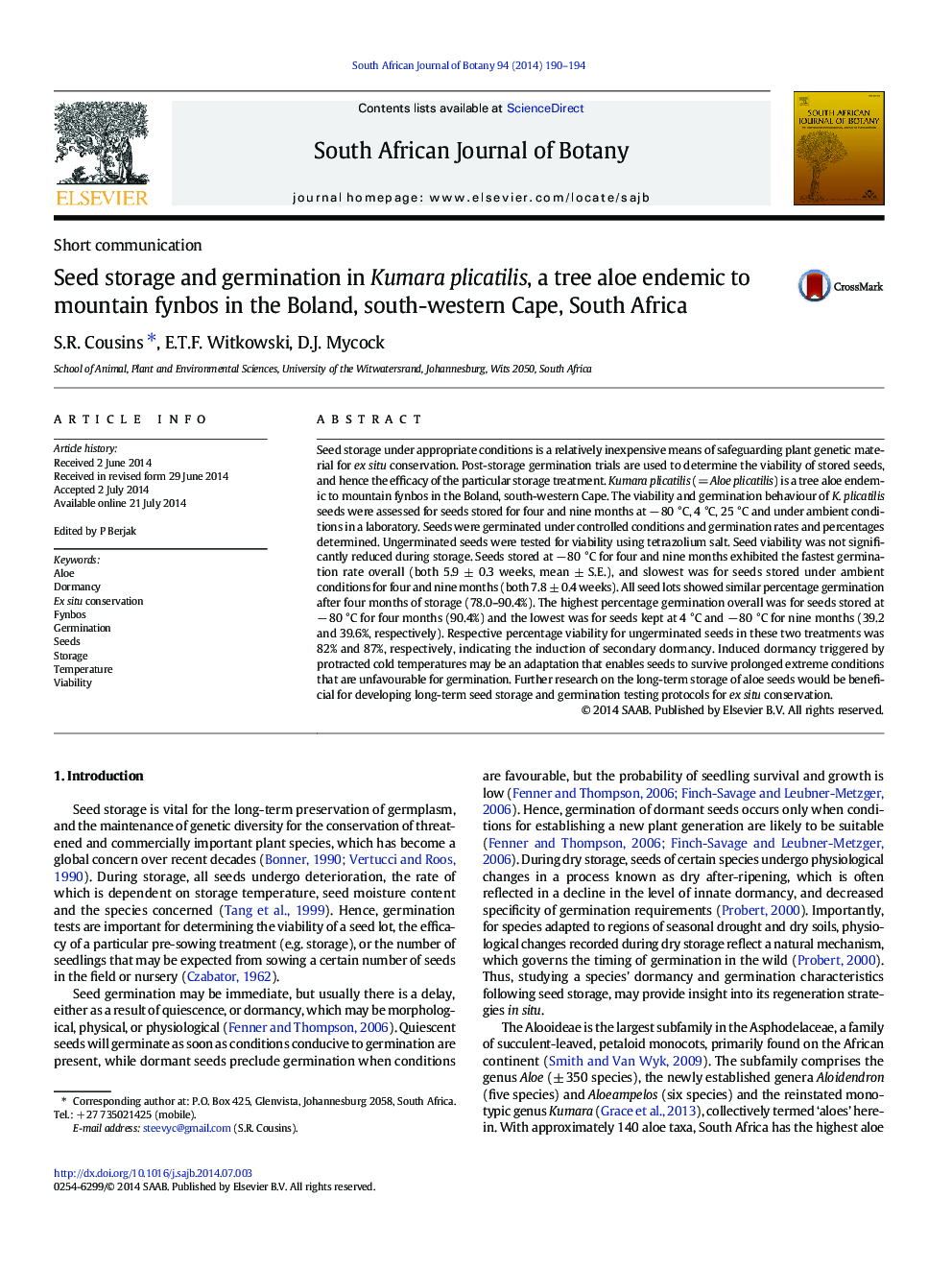| Article ID | Journal | Published Year | Pages | File Type |
|---|---|---|---|---|
| 4520691 | South African Journal of Botany | 2014 | 5 Pages |
•We studied the viability & germination of stored Kumara plicatilis seeds.•Seed viability was not reduced after storage at 25 °C, 4 °C, − 80 °C & ambient.•All seeds showed similar percentage germination after four months of storage (78–90%).•Lowest percentage germination was for seeds kept at 4 °C & − 80 °C for nine months.•High viability of ungerminated seeds kept at 4 °C & − 80 °C indicates dormancy induction.
Seed storage under appropriate conditions is a relatively inexpensive means of safeguarding plant genetic material for ex situ conservation. Post-storage germination trials are used to determine the viability of stored seeds, and hence the efficacy of the particular storage treatment. Kumara plicatilis (= Aloe plicatilis) is a tree aloe endemic to mountain fynbos in the Boland, south-western Cape. The viability and germination behaviour of K. plicatilis seeds were assessed for seeds stored for four and nine months at − 80 °C, 4 °C, 25 °C and under ambient conditions in a laboratory. Seeds were germinated under controlled conditions and germination rates and percentages determined. Ungerminated seeds were tested for viability using tetrazolium salt. Seed viability was not significantly reduced during storage. Seeds stored at − 80 °C for four and nine months exhibited the fastest germination rate overall (both 5.9 ± 0.3 weeks, mean ± S.E.), and slowest was for seeds stored under ambient conditions for four and nine months (both 7.8 ± 0.4 weeks). All seed lots showed similar percentage germination after four months of storage (78.0–90.4%). The highest percentage germination overall was for seeds stored at − 80 °C for four months (90.4%) and the lowest was for seeds kept at 4 °C and − 80 °C for nine months (39.2 and 39.6%, respectively). Respective percentage viability for ungerminated seeds in these two treatments was 82% and 87%, respectively, indicating the induction of secondary dormancy. Induced dormancy triggered by protracted cold temperatures may be an adaptation that enables seeds to survive prolonged extreme conditions that are unfavourable for germination. Further research on the long-term storage of aloe seeds would be beneficial for developing long-term seed storage and germination testing protocols for ex situ conservation.
